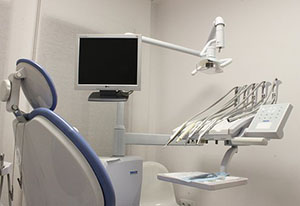Healthcare and Dental
Waste reduction, environmental compliance, and environmentally preferable purchasing for health care and dental facilities.
 Hospitals, pharmacies and other health care providers use a variety of products that contain hazardous chemicals or are deemed hazardous once they become waste. The New Hampshire Pollution Prevention Program (NHPPP) works with health care facilities of all types to create a healthy environment for patrons and employees.
Hospitals, pharmacies and other health care providers use a variety of products that contain hazardous chemicals or are deemed hazardous once they become waste. The New Hampshire Pollution Prevention Program (NHPPP) works with health care facilities of all types to create a healthy environment for patrons and employees.
In 2001, the NHPPP, in partnership with the New Hampshire Hospital Association Foundation for Healthy Communities, established NH Hospitals for a Healthy Environment, which continues to meet quarterly to discuss waste reduction opportunities, environmental compliance improvements and environmentally preferable purchasing options.
Along with waste reduction strategies, NHPPP provides free, confidential compliance assistance to help health care facilities comply with local, state, and federal environmental requirements.
Health Care Guidance
Dental Care Guidance
Dental Care
 Over the years, the dental Industry has made great strides in reducing the generation of hazardous wastes by switching from traditional X-ray developing to digital imaging, which eliminates the generation of silver (D011 characteristic waste). However, amalgam, a typical dental waste, is comprised of nearly 50% mercury, which is considered a hazardous waste (D009 characteristic waste). Mercury is highly toxic to humans and wildlife. In humans, mercury is toxic to the nervous system (brain and spinal cord), particularly the developing nervous system of a fetus or young child. Effects seen in children with elevated mercury exposure include lowered cognitive abilities, impaired hearing and poor coordination. Chronic, elevated exposure to mercury also affects the kidneys, liver and immune system.
Over the years, the dental Industry has made great strides in reducing the generation of hazardous wastes by switching from traditional X-ray developing to digital imaging, which eliminates the generation of silver (D011 characteristic waste). However, amalgam, a typical dental waste, is comprised of nearly 50% mercury, which is considered a hazardous waste (D009 characteristic waste). Mercury is highly toxic to humans and wildlife. In humans, mercury is toxic to the nervous system (brain and spinal cord), particularly the developing nervous system of a fetus or young child. Effects seen in children with elevated mercury exposure include lowered cognitive abilities, impaired hearing and poor coordination. Chronic, elevated exposure to mercury also affects the kidneys, liver and immune system.
Environmentally, mercury is a concern because of the many ways the chemical can come into contact with soil, water, surface water and air as a result of improper disposal. When mercury waste is incinerated, the volatilized mercury precipitates to the environment and will enter the soil, surface waters and food chain. When mercury waste is disposed of down the drain, there is potential for contamination of water and/or sludge at the wastewater treatment plant or the septic system.
Dental practices that generate amalgam waste are required by New Hampshire Administrative Rules to have an amalgam separator that is certified by the manufacturer as meeting International Organization for Standardization (ISO) 11143:2008(E) standards and is designed and constructed for the expected volume and flow rate of discharge from the dental practice it serves. EPA also provides Dental Effluent Guidelines. Dental practices are also required to fill out a Dental Amalgam Separator Self-Certification Form and return it to the NHDES address or email address listed on the form.




